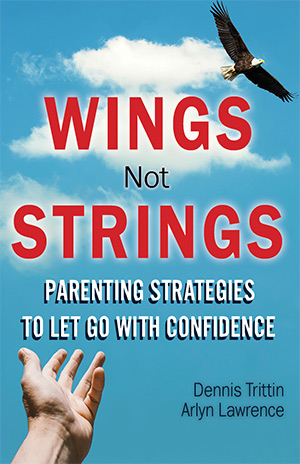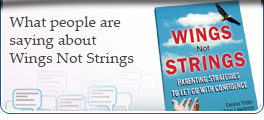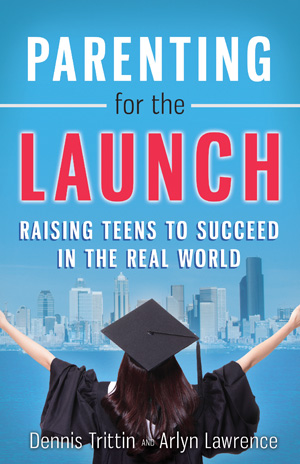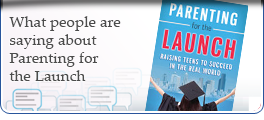How to Conquer Career Anxiety (Part One)
3/7/2019 12:02:58 PM
 Through the years, we have had numerous opportunities to mentor teens and young adults in the 16-24-age range regarding their careers. We see firsthand the stages of: 1) high schoolers getting a sense of their future career and plotting their education/training course, 2) college/vocational students who are finalizing their career decisions and are closer to entering the workforce, and 3) graduates who are experiencing the first few years of their careers (or job searches), now with a “taste” of the choices they made.
Through the years, we have had numerous opportunities to mentor teens and young adults in the 16-24-age range regarding their careers. We see firsthand the stages of: 1) high schoolers getting a sense of their future career and plotting their education/training course, 2) college/vocational students who are finalizing their career decisions and are closer to entering the workforce, and 3) graduates who are experiencing the first few years of their careers (or job searches), now with a “taste” of the choices they made.Although many are content and confident in their respective stages, others are anxious, concerned, or disillusioned. Here is a synopsis of the concerns we hear:
- High School Students: “spooked” by peers who have already decided on their careers/majors (and, not realizing how many will eventually change their minds!), they feel insecure and stressed out when still undecided. Also, the “college for all” messaging is causing considerable anxiety and insecurity with students who are weighing other, better-fitting options.
- College/Vocational Students: many are confused and unsettled about their final career/major selections, after taking courses and changing their minds. It is common for college students to switch majors multiple times, but each change produces anxiety. With each passing semester, pressure mounts to “bite the bullet” to avoid lengthening their studies.
- Graduates/Early Career Individuals: many experience difficulty: 1) finding a job in their major (or at all), 2) knowing how to search for positions, and 3) being fulfilled in their job. Each has its unique challenges and frustrations, especially when job offers don’t materialize as expected.
If this sounds like you, or someone you know, please don’t lose hope. You’re in the early stage of a long journey, and with the right mindset and methods, you can enjoy tremendous career success. With that, we’d like to offer some encouragement and advice for each of these situations.
General Tips
- Take charge of your career selection. Many young people are allowing others too much influence on their decisions. In the educator realm, this includes high school teachers, professors, and counselors who often lack direct knowledge of the private sector and the day-to-day aspects of different fields. Teens and young adults are highly impressionable at this stage and often defer too much to others who do not know them (or all the realistic career fits) sufficiently well to command such influence. Additionally, they are often swayed by friends who rarely possess sufficient knowledge to be very helpful; their advice is often counterproductive. Choosing a career/major needs to be among the best-researched decisions in life, and we, individually must take the lead role.
- Focus on self-awareness. No one knows you like you. Accordingly, your career selection requires a thorough understanding of self: your interests, skills and assets, personality, stressors, work environment preferences, income desires, and passions. Questions such as, “Who am I?” and “What do I have to offer?” are vitally important inputs to making a well-fitting career decision.
- Consider a variety of options. Although many young adults know with conviction what career they want to pursue, most don’t. Even if they think they know in high school, they often change their mind with the benefit of courses and more knowledge of other options. Sadly, some 40 percent of college graduates with Bachelor’s degrees regret their major (based on a recent Gallup survey)! All of this suggests that people aren’t researching their options thoroughly enough before committing. This is an unfortunate, and very expensive, regret.
The solution is to research and evaluate several options with the aid of career assessments/surveys, job shadowing, internships, and conversations with those in your professional network. There is no substitute for talking with people in the fields you are considering. They are invaluable in providing they day-to-day perspectives of the job and the career path/qualifications required. - Don’t forget to research industries and companies. Often, young adults select careers based primarily on their skills and courses and deemphasize the various industry options. For example, a graduate in accounting could work for a public accounting firm, a private or public company in any number of industries (e.g., banking, health care, technology), or a non-profit organization. Individuals are more fulfilled when their skills are used in specific fields and companies they’re excited about. So, in addition to skills assessments, be sure to explore different industries and employers via Career Clusters, libraries, Chambers of Commerce, suggestions from your network, internet searches, and career placement firms like Indeed. This research will help to select a better long-term fit.
- Evaluate employment prospects of different majors/careers. Far too many students are selecting their majors without thoroughly researching the corresponding job market. Post-secondary education is simply too expensive to select majors that don’t offer realistic employment prospects! Before committing to a specific field/major, obtain statistics from your educational establishment regarding the percent of graduates who landed full-time jobs in their field. Many many majors today have no realistic jobs at the end of the rainbow or are so general that it is extremely difficult for graduates to actually work in the fields they are pursuing! Understandably, this is a tremendous source of frustration and disillusionment for graduates who didn’t know any better. Educators need to step up their game in this regard! Big time.
In part two, we will provide specific recommendations to high schoolers, college/vocational students, and graduates employed, or pursuing, employment. We encourage you to share this series with the students, children, and mentees under your guidance.
Tagged as: anxiety, career, career readiness, teens, mental health, college and career readiness, college, parenting for the launch



















